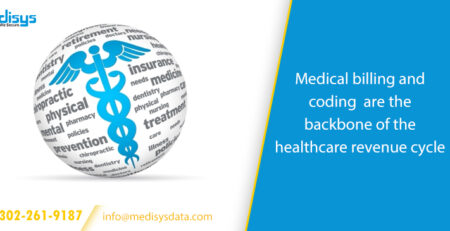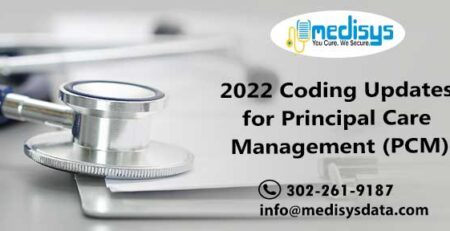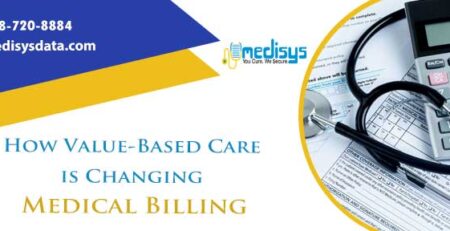Introduction
For many physician practices, Medicare beneficiaries represent a significant portion of their patient population. Accurate and efficient Medicare billing is not merely about receiving timely payments; it forms the base for financial stability, regulatory compliance, and ultimately, the ability to continue providing quality patient care.
However, navigating the complexities of Medicare billing can be a challenging task, especially when considering its distinct differences from private insurance models. Unlike commercial payers, Medicare operates under specific coding rules, stringent medical necessity requirements, and unique participation options for physicians. Mastering Medicare billing ensures a healthy revenue cycle, minimizing claim denials and mitigating the risk of costly audits. This guide aims to provide physician practices with an overview of Medicare billing, empowering them to navigate this landscape with confidence.
Understanding Medicare for Physicians
Medicare, the federal health insurance program for individuals aged 65 or older, certain younger people with disabilities, and people with End-Stage Renal Disease, is divided into several parts.
- For physicians, Medicare Part B is the most relevant, covering a wide array of outpatient medical services. This includes physician visits, consultations, minor surgical procedures, diagnostic tests like X-rays, laboratory work, mental health services, and even durable medical equipment. It’s important to remember that Part B typically involves an annual deductible and a coinsurance payment for most services.
- Many Medicare beneficiaries also opt for Medicare Advantage (Part C) plans, which are offered by private companies approved by Medicare. These plans often provide benefits beyond Original Medicare. For physicians, this means it’s crucial to verify the specific plan details for each patient with Medicare Advantage, as coverage rules, co-pays, deductibles, and the need for prior authorizations can vary significantly between different plans. Always check the patient’s insurance card and don’t hesitate to contact the payer directly for clarification.
- While not directly impacting physician service billing, Medicare Part D, which covers prescription drugs, is relevant for physicians when prescribing medications. Being aware of formulary restrictions and prior authorization requirements of their patients’ Part D plans can prevent patient dissatisfaction and potential administrative hurdles.
- Finally, Medicare Supplement (Medigap) plans help patients cover the out-of-pocket costs associated with Original Medicare (Part A and B), such as deductibles and coinsurance. If a patient has a Medigap plan, you will typically bill Medicare first, and then Medicare will automatically forward the claim information to the Medigap insurer for secondary payment.
Medicare Enrollment & Provider Participation
To bill Medicare for services, physicians must first enroll in the program through the Provider Enrollment, Chain, and Ownership System (PECOS). This online system is mandatory, and it’s crucial to keep your enrollment information accurate and up-to-date. Once enrolled, physicians have several participation options:
- Participating (PAR): PAR providers agree to accept Medicare’s approved amount as full payment for covered services. They receive direct payment from Medicare, and the patient is only responsible for the deductible and coinsurance. A significant benefit of being a PAR provider is inclusion in Medicare’s online provider directory, which can attract more patients.
- Non-Participating (Non-PAR): Non-PAR providers can choose to accept assignment (Medicare’s approved amount) on a claim-by-claim basis. They receive 95% of the PAR fee schedule amount from Medicare and can bill the patient up to 15% above the Medicare-approved amount (known as the “limiting charge”).
- Opting Out: In rare cases, physicians can choose to opt out of Medicare entirely. This means they cannot bill Medicare for any services provided to Medicare beneficiaries. Instead, they must have a private contract with the patient outlining that the patient will pay their full charges directly, and Medicare will not provide any reimbursement.
Key Medicare Billing Guidelines for Physicians
Understanding the core billing guidelines is essential for accurate claim submission.
- The Medicare Physician Fee Schedule (MPFS) lists the maximum allowed fees for a wide range of services, taking into account the physician’s work, practice expenses, and professional liability insurance costs, with adjustments for geographic location.
- Accurate CPT (Current Procedural Terminology) and HCPCS (Healthcare Common Procedure Coding System) coding is fundamental. CPT codes report medical procedures and services, while HCPCS Level II codes are used for supplies, equipment, and certain services not covered by CPT. For common outpatient physician visits, Evaluation and Management (E/M) codes (e.g., 99203 for new patients, 99214 for established patients) are frequently used, with the specific code level determined by the complexity of the patient’s condition and the extent of the physician’s work.
- Modifiers play a crucial role in providing additional information about the services rendered. For example, the -25 modifier indicates a significant, separately identifiable E/M service on the same day as a procedure. The -59 modifier signifies a distinct procedural service performed at a different session or site or unrelated to another procedure on the same day. For telehealth services, the -95 modifier is used to denote a synchronous (real-time audio and video) interaction.
- Crucially, every service billed to Medicare must meet medical necessity criteria, meaning it must be reasonable and necessary for the diagnosis or treatment of the patient’s condition. This necessitates clear, concise, and comprehensive documentation in the patient’s medical record that directly supports the services billed and the medical necessity for those services. Finally, Medicare Part B covers a range of preventive services (e.g., annual wellness visits, screenings), each with specific coding and billing guidelines that must be followed.
Medicare Claims Submission Process
Physicians send their Medicare claims to companies called Medicare Administrative Contractors (MACs), which are hired by Medicare to handle payments. While physicians can still use paper forms (CMS-1500), submitting claims electronically (EDI) is faster and more accurate. Common reasons for claim rejection include:
- incorrect modifiers
- missing or invalid diagnosis codes
- services not covered by Medicare
- failure to provide necessary supporting documentation.
Adhering to Medicare’s timely filing rules is critical; typically, claims must be submitted within one year of the date of service. Understanding the Medicare appeals process is also important for addressing denied claims, with several levels of appeal available.
Medicare Compliance & Audit Risks
Compliance with Medicare regulations is crucial to avoid penalties and audits. Practices must be vigilant in preventing Medicare fraud, waste, and abuse (FWA). Fraud involves intentionally submitting false claims, waste refers to overutilization of services, and abuse includes improper billing practices. Adherence to HIPAA (Health Insurance Portability and Accountability Act) regulations is also crucial for protecting patient health information during the billing process.
Physicians may face various types of Medicare audits, including RAC (Recovery Audit Contractors) audits focused on identifying and recovering improper payments, CERT (Comprehensive Error Rate Testing) audits that measure the accuracy of claim processing, and ZPIC (Zone Program Integrity Contractors) audits that target potential fraud, waste, and abuse in specific regions. To ensure compliance, practices should implement regular staff training, conduct internal audits, and stay informed about the latest CMS guidelines and policy changes.
Outsourcing Medicare Billing
Physician practices often face challenges such as frequent claim denials due to coding errors or lack of documented medical necessity. Keeping up with the ever-changing Medicare rules and fee schedule updates can also be a significant burden. One effective solution to these challenges is to consider outsourcing Medicare billing to a specialized medical billing company like Medisys. These experts possess in-depth knowledge of Medicare regulations, coding guidelines, and claim submission processes, leading to more accurate claims, reduced denials, and ultimately, maximized reimbursements. By entrusting their billing to experienced professionals, physicians and their staff can focus on providing high-quality patient care.
To conclude, billing for Medicare as a physician can be tricky but getting it right is super important. You need to know the different parts of Medicare that affect your payments, how to sign up, and the rules for how you bill for your services. Things like using the right codes and having good records matter a lot to avoid mistakes and get paid on time. While it can be tough to keep up with all the rules, understanding them helps you stay compliant and avoid problems.
About Medisys
Medisys is a leading medical billing company providing accurate Medicare billing services. Our team of expert medical billing professionals specializes in handling all aspects of Medicare billing, from eligibility verification and accurate coding to claim submission and denial management. We stay up-to-date with the latest regulations, ensuring your claims are processed correctly and your practice receives the maximum allowable reimbursement. Let us simplify your Medicare billing, reduce administrative burdens, and improve your revenue cycle. Contact us today for a consultation and discover how our services can benefit your practice.












